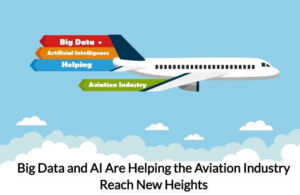I am very glad to announce that my Research paper which was one of my MBA projects is successfully published at the European, Mediterranean, and Middle Eastern Conference on Information Systems. I along with my team have written this paper to improve aviation safety with the prudent use of artificial intelligence. The paper concentrates on how the use of artificial intelligence can counteract the impact of factors like pilot fatigue, adverse weather, and false alarms that influence flight safety.
Artificial intelligence or AI, for now, is no longer just a hypothetical subject that Sci-Fi fanatics are tossing around. With AI, our world is getting more and more unified. You connect with AI when you tell your Google Home, Amazon Echo, or even Siri to play your chosen playlist.
Today, this intelligent technology is more realistic than it ever was in the past and AI’s future seems as promising as ever.
Undoubtedly, The ideal version of Google will be Artificial Intelligence. All on the web will grasp the universal search engine. It would comprehend what you wanted exactly and it will give you the right thing. Now we’re nowhere near doing that. Nevertheless, we can get increasingly closer to that and that is essentially what we are focused on.

Artificial Intelligence in the Hub of the Aviation Industry
The aviation industry is always striving for ways to develop its aviation facilities, such as the logistics chain, maintenance service, and airport climate among others. Yet air safety has always been the foremost concern for the aviation industry. Although 2019 was the third safest year in commercial flight record last year, it also witnessed 280 fatal deaths and 20 fatal crashes.
The use of AI (Artificial Intelligence) technology in commercial aviation has contributed to some big changes in the way flights work today. AI tools and technologies are being used by the world’s leading airliner service providers to offer a more customized travel experience to their customers. AI will perform an even more important role in the aviation industry, from strengthening AI-powered airport booths to using them to simplify airline operations and security checks.
It has been found that artificial intelligence is incredibly potent and numerous studies have shown how the use of artificial intelligence can deliver major changes in aviation. For advanced analytics, pattern detection, auto-scheduling, targeted ads, and customer feedback analysis, a few airlines already use artificial intelligence that shows impressive outcomes for a better flight experience.
This paper is intended to improve aviation safety with the prudent use of artificial intelligence. The most important factor in any industry is Safety. And, when it comes to Aviation, it’s the major one.
https://link.springer.com/chapter/10.1007/978-3-030-63396-7_39

